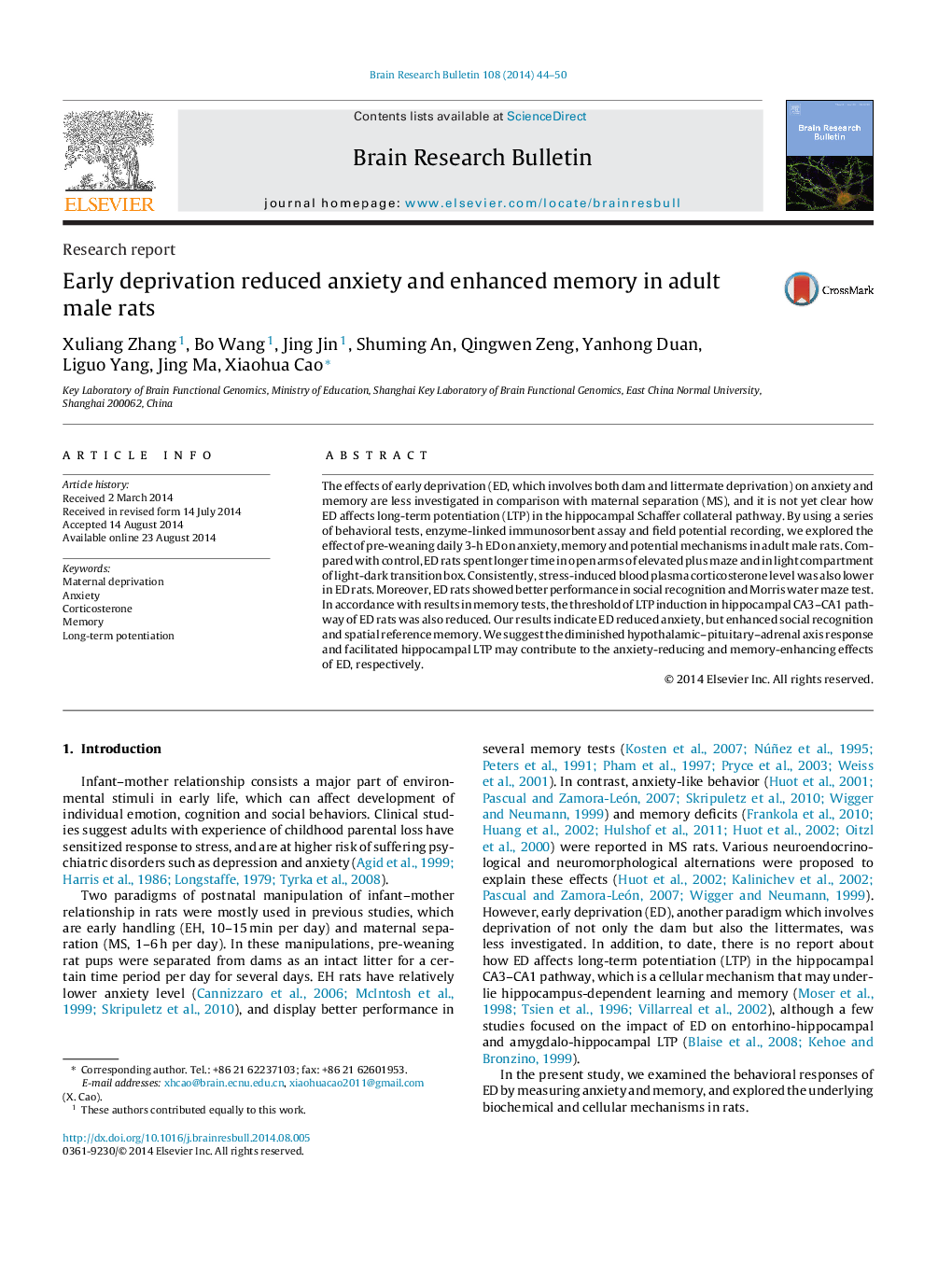| Article ID | Journal | Published Year | Pages | File Type |
|---|---|---|---|---|
| 6261762 | Brain Research Bulletin | 2014 | 7 Pages |
â¢Anxiety level in adult rats can be reduced by infant daily early deprivation (ED).â¢Stress-induced corticosterone (CORT) secretion can be reduced by ED.â¢Social recognition and spatial reference memory can be enhanced by ED.â¢Threshold of long-term potentiation (LTP) induction can be reduced by ED.
The effects of early deprivation (ED, which involves both dam and littermate deprivation) on anxiety and memory are less investigated in comparison with maternal separation (MS), and it is not yet clear how ED affects long-term potentiation (LTP) in the hippocampal Schaffer collateral pathway. By using a series of behavioral tests, enzyme-linked immunosorbent assay and field potential recording, we explored the effect of pre-weaning daily 3-h ED on anxiety, memory and potential mechanisms in adult male rats. Compared with control, ED rats spent longer time in open arms of elevated plus maze and in light compartment of light-dark transition box. Consistently, stress-induced blood plasma corticosterone level was also lower in ED rats. Moreover, ED rats showed better performance in social recognition and Morris water maze test. In accordance with results in memory tests, the threshold of LTP induction in hippocampal CA3-CA1 pathway of ED rats was also reduced. Our results indicate ED reduced anxiety, but enhanced social recognition and spatial reference memory. We suggest the diminished hypothalamic-pituitary-adrenal axis response and facilitated hippocampal LTP may contribute to the anxiety-reducing and memory-enhancing effects of ED, respectively.
